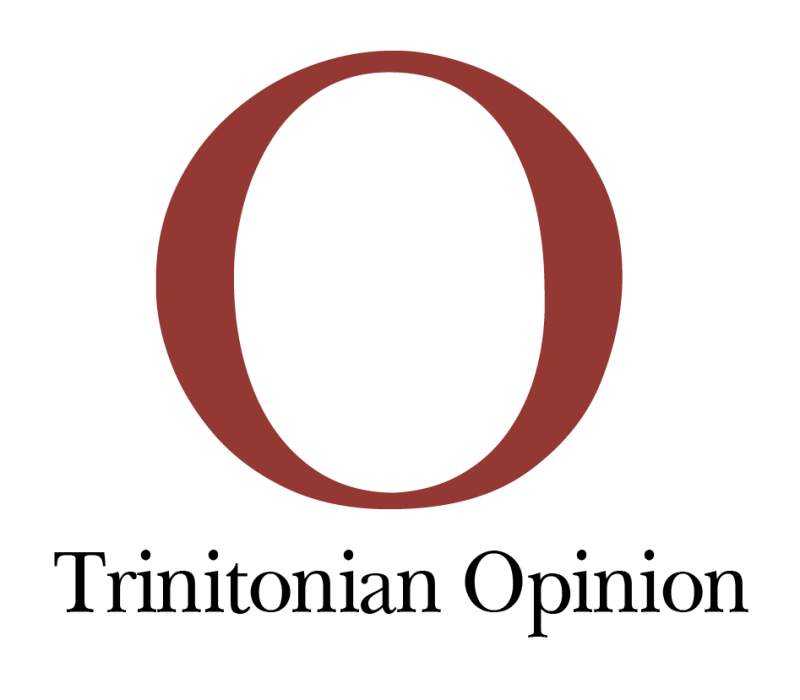As most of you hopefully know by now, a racist image was recently posted to the Trinity Snaps account. A student shared a picture featuring a rifle pointing out of a car window with the caption “where they at”¦” overlaid by the Black History Month filter.
When I first heard about the post, I didn’t want to know the details “” knowing that it was something offensive to people of color should be enough motivation to speak out. But I’ll share the details I’ve learned because I want you to feel the same outrage I do, to get angry that there are members of our community who think threatening and dehumanizing our peers is acceptable behavior. I want you to imagine what it might feel like to be a black member of our community right now. How safe would you feel walking to your dorm at night? Think about how it would feel to not know which of your peers thinks the value of your life is a joke.
Earlier this week, a member of the Student Government Association posted on behalf of the organization in Overheard At Trinity to state that the SGA does not condone this behavior. Students and alumni began a discussion about the situation, and my comments on that thread lead to this column.
Some of the ideas that came up were:
Maybe the person was trying to be humorous and failed, and if this person was trying to be extremely offensive to garner attention, why would we give him the attention he wants?
To address the idea of distasteful humor, I’d first like to say that we are all entitled to our feelings. We each have a different sense of humor, and I acknowledge that respectful people can disagree on the specifics of what makes a good joke. However, there are implications to our humor. Sometimes people get so caught up in their right to freedom of expression they forget that their speech has implications. But it does. And the freedom to speak our minds does not excuse us.
“Jokes” of this caliber aren’t funny. Racist jokes, rape jokes, homophobic jokes and suicide jokes aren’t funny. When I say funny, I mean their implications aren’t funny. No one with a moral compass is laughing because another black person got shot, or another person got raped, or another gay person was jumped, or someone else committed suicide. Yet people love to claim that they have a dark sense of humor to justify laughing at the expense of those affected by traumas, disease and discrimination.
Why is it important to reduce the number of jokes made at the expense of people affected by the aforementioned issues? Because every time someone tells a racist joke and another person laughs, there’s a chance that other prejudiced people feel more justified in their hate. Every time someone tells a rape joke, there is a chance a rapist feels validated; rapists believe everyone rapes, and racists believe everyone is secretly racist. Even if these people haven’t committed any crimes, the more validation they receive, the higher the chances are that they will. There is a way to joke about controversial issues that can help lead to change, for example Louis C.K.’s “On Dating.” But very few people do it effectively, and controversial jokes often trivialize issues further marginalizing groups of people.
In the case of the Snapchat in question, we cannot write it off as a dark joke that failed. All dark “jokes” fail. They fail people who live on the edge of safety. Allowing dark “jokes” to be acceptable at Trinity would be a failing of our community. We would be failing our friends of color, our women, our LGBTQA friends, for we could be putting their lives in danger by normalizing violence.
Now to address the other piece of our Facebook discussion: if this person was trying to be extremely offensive to get a reaction, aren’t we empowering him by giving him attention? No. We may be reacting loudly and publicly, but this is not empowerment. This discussion is us telling our black peers that their lives matter. We value them and we will not tolerate any threat to their lives because we are one community. We are standing up to whoever posted the photo and saying, “Hey, you may be part of this community, but we do not support your beliefs. You are not the norm.”
It would empower the perpetrator if we all stayed quiet “” if we allowed our black friends to believe that Trinity is a place that tolerates racially based threats. But hate is not a Trinity value. And so we speak.
In regard to a solution, people spoke out against the SGA’s opinion that everyone should unfollow Trinity Snaps saying it won’t do anything. But, what is a writer without readers? What is an actor without an audience? What is a Snapchat account without a following? Unfollowing this account is one effective way to disempower the person behind it from having a mass influence.
Another suggestion was to overflow the account with positivity. Perhaps the school could even create an official Trinity Snapchat account that is moderated by a student-worker, and this account could focus the parts of Trinity that make us proud.
But just unfollowing isn’t enough. Creating a different, positive account isn’t enough. Ignoring the problem doesn’t make it go away. We all need to go a step further. When you hear someone “joking” about marginalized groups of people, speak up. Hold each other accountable. Even when you fear you’ll alienate someone, speak up. When everyone is drunk at a party and spewing offensive jokes, be that person who kills the mood before the mood gets someone killed. Show your peers that you value their lives even if they are not around. Hate is not a Trinity value. If you see something, say something.






